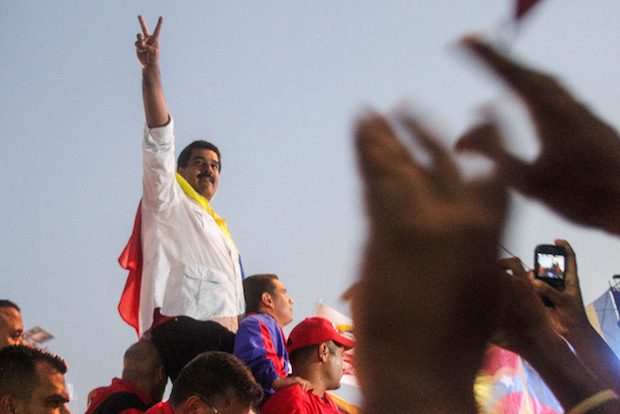Obama’s Venezuela Blunder

Frida Ghitis sums up the administration’s blundering in Venezuela:
Venezuela is one country where U.S. foreign policy under President Barack Obama had struck the right tone—until a few weeks ago.
A diplomatic miscalculation by Washington has strengthened the repressive Venezuelan regime and derailed the Obama administration’s campaign to bolster ties with Latin American nations after December’s landmark reopening of relations with Cuba.
Venezuela is just the latest case in which U.S. sanctions have backfired and have contributed to the strengthening of the regime they were meant to hurt. Though they were ostensibly intended to punish leading members of the Venezuelan government for their abuses and corruption, the sanctions have provided an unwelcome boost to Maduro, who has milked the absurd declaration of his country as an “extraordinary threat” to the U.S. for all it is worth. Ghitis continues:
The Venezuelan legislature approved the “anti-imperialist” law, which gives Maduro the right to bypass the legislature and rule by decree until the end of 2015.
This development has not only strengthened Maduro’s position, it has altered conditions for Washington in the rest of Latin America.
U.S. action has therefore directly made life considerably more difficult for the opposition, which condemned the U.S. action for its interference in Venezuelan affairs. The U.S. has clumsily helped a flailing demagogue and his allies shore up support. This was entirely predictable, and sanctions skeptics warned against imposing them here for precisely these reasons. I wrote this in May of last year:
If the U.S. imposes sanctions on Maduro and his cronies, it will be because it has decided that it should actively encourage one side in a foreign political dispute. That will most likely backfire and hurt the opposition forces that supporters of sanctions think they are helping.
This was not hard to guess, because this is what keeps happening again and again when the U.S. sanctions other governments for its internal abuses. As we’re seeing now, even targeted sanctions that are aimed at a handful of officials can be used by the regime to its own advantage over its internal opponents. The sanctions were never likely to have the desired effect on the regime’s behavior, and they were always more likely to make conditions inside the country worse, and so they have. It is probably too late to repair the damage done by this short-sighted meddling, but it should be remembered as a cautionary tale the next time that hawks start demanding that the U.S. show our support for a foreign opposition by taking some punitive action against their leaders. Sanctions are typically worse than useless, and they tend to have nothing but harmful effects on the people of the targeted country.
Comments